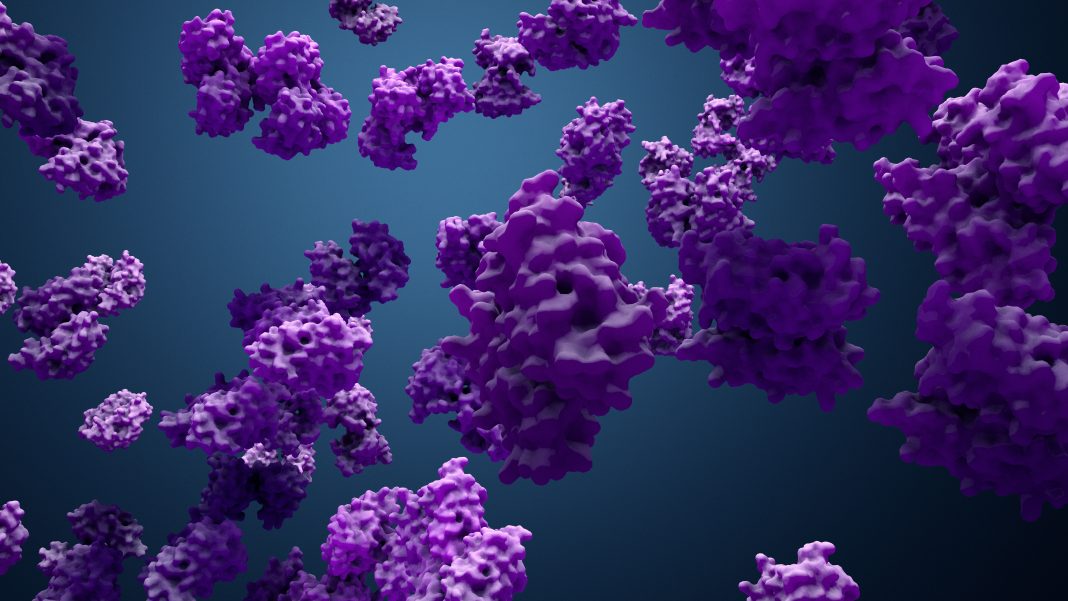Developing small molecules that activate a subset of the body’s proteasomes to degrade defective proteins could be an effective way to treat neurodegenerative diseases and other complex disorders caused by multiple dysfunctional proteins. In fact, Diogo Feleciano, PhD, one of the co-founders and the CSO of a new biotech startup Booster Therapeutics said that his company’s proteasome activation approach offers important advantages over traditional targeted protein degradation-based therapies.
Booster, which officially launched this week, raised $15 million in a financing round led by Apollo Health Ventures and Novo Holdings. The company was founded by Feleciano, Darci Trader, PhD, an associate professor at the University of California, Irvine, and Apollo Health Ventures, to develop small molecule therapeutics that boost the body’s innate proteasome activity. According to Patrick Trojer, PhD, chair of Booster’s Board of Directors and CEO of TRIANA Biomedicines, “The application potential of this therapeutic frontier is highly attractive, and given the broad-spectrum activity of proteasome activators, we see opportunities for both monotherapy and combination approaches where increased proteasome activity may enhance the efficacy of other therapeutics.”

The first thing to understand is how Booster’s approach to targeting proteasomes is different from targeted protein degradation. As the cell’s natural quality control machinery, proteasomes play a critical role in removing damaged or misfolded proteins. When their activity declines due to age the result is an accumulation of misfolded proteins which increases the risk of serious disease. Current targeted protein degradation methods use proteolysis-targeting chimeras to increase the ubiquitination of single disease proteins marking them for degradation by 26S proteasomes.
In contrast, Booster’s compounds bind to and boost the activity of 20S proteasomes, which naturally recognize problematic proteins without requiring a ubiquitin tag. The activity of these proteasomes is impaired in various neurodegenerative diseases like Parkinson’s as well as in other disorders. By boosting their activity, cells will be able to target and break down a wider range of pathological proteins. Trader, one of Booster’s co-founders has previously published some details of the company’s therapeutic approach to addressing protein accumulation in an article in ACS Pharmacology & Translational Science in 2018.
Booster identifies candidate drug molecules using a proprietary platform called DGRADX™. “We put different methods together to really find molecules that bind directly to our target and activate it,” Feleciano told GEN. Additionally, the company put its own spin on the traditional cycle of screening and optimizing drug molecules by leveraging automation to make their approach “robust and reproducible.” They also relied on concepts from structural biology to help them understand exactly where the drug molecules bind in order to modulate 20S proteasome activity.
This combination of automated high-throughput screening and structural and computational tools enabled the company to build what it describes as an extensive library of potential activator compounds. They have plans to develop a multi-disease pipeline that addresses various proteinopathies which could include conditions like Parkinson’s and Alzheimer’s diseases. Exactly which drugs will be part of that pipeline will of course depend on factors such as which compounds best target the 20S proteasome, have appropriate drug-like properties, and so on. They hope to initiate IND-enabling studies for their lead asset within the next few years.
“Proteasome impairment is something that [happens] in all our bodies in different times, not only during aging,” Feleciano noted. In her 2018 paper, Trader noted that only 10% of proteasomes are 26S in aging or disease cells meaning that about 90% of proteasomes are “unable to perform ubiquitin-dependent protein degradation activity.”
Booster’s drugs will make it possible to target the available 20S proteases and hopefully work for a range of disease types. Booster is not stating at this time exactly which conditions it will target. But neurodegenerative diseases are an area of interest. Disorders like Alzheimer’s disease and Parkinson’s have historically been challenging to treat with single-agent therapeutics. And there is an opportunity there for proteasome activators because they are capable of targeting multiple proteins in diverse pathways.
In fact, the failure of single target treatments for things like neurodegenerative and cardiometabolic disorders is a big part of what drives Feleciano and why he is passionate about Booster’s potential. “[20S proteasomes] are a target that hasn’t been modulated the way that we are modulating,” he said. “We are convinced that patients are going to benefit from it [and] we want to be the company that brings this to patients. There are a lot of unknowns, but we want to be the ones that pioneer this space.”


